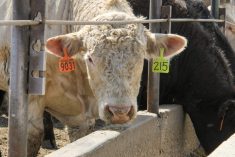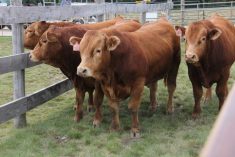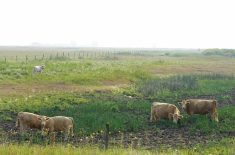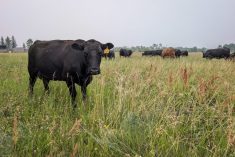More funding for agriculture innovation in Manitoba’s latest provincial budget will be offset in part by an immediate end for several of the less popular tax credits available for farm use.
Provincial Finance Minister Cameron Friesen on Tuesday laid out a 2017-18 budget with an overall $840 million deficit, based on a four per cent increase in revenues at $16.1 billion and a 3.1 per cent increase in expenditures at $17.06 billion compared to its 2016-17 budget.
“Some of our provincial neighbours are pursuing different paths involving stark decisions, choosing either higher taxes or pursuing increased spending,” he said in a release, while his budget “avoids such drastic measures.”
Read Also
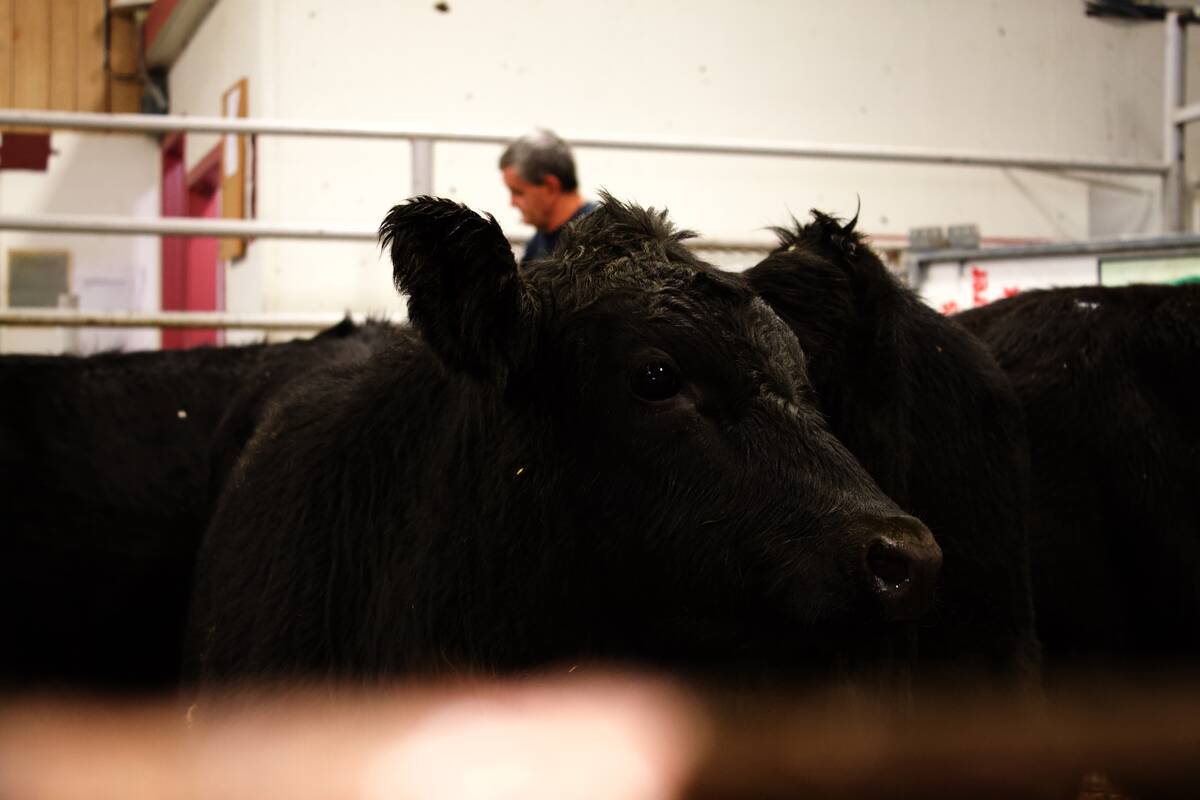
U.S. livestock: Chicago cattle and hogs slide back
Chicago Mercantile Exchange cattle and hog futures slipped back on Tuesday. Most-active April live cattle contracts lost 0.775 cents to…
“For the first time in a long time, Manitoba has a government that understands and appreciates the impact of agriculture on our economy,” Friesen wrote in his speech. “A government that recognizes the value of the sector that not only employs thousands of Manitobans, but feeds both our province and the world.”
Friesen said his budget “holds the line” on programs such as the farmland school tax rebate, and maintains current borrowing limits for individuals and associations through the Livestock Associations Loan Guarantee program.
His 2017-18 budget backs an enhanced “livestock growth strategy” for the province, plus an “agricultural modelling and forecasting program,” and also puts up $3 million via the federal/provincial Growing Forward 2 ag policy funding framework for the Manitoba Grain Innovation Hub.
The hub was set up during the previous administration in 2014 with federal and provincial backing as “a collaborative environment to encourage innovation in Manitoba’s grain (cereals, oilseeds, pulses) sector.”
The added funding for the hub, Friesen wrote in his speech, is meant “to support research and increased development activities that will grow the livestock sector.”
Friesen, in his speech, also announced the province is “eliminating boutique tax credits that had little uptake or failed to meet their objectives.”
Manitoba, with over 30 provincial tax credits, has had “among the most complex and diversified” tax credit systems in the country, he said.
Among the tax credits that end effective Tuesday for farmers and agribusinesses are the odour control tax credit, the nutrient management tax credit and the riparian tax credit. All three cuts were listed as having “negligible” budget impact.
The odour control credit was an income tax credit for businesses that invested in capital projects to control “nuisance odours that arise or may arise from the use or production of organic waste.”
The nutrient management credit, which dated back to 2012, was available to livestock producers and farm corporations investing in solid-liquid separation systems, anaerobic digesters, gravity settling tanks, manure treatment systems, manure composting facilities and, for smaller-scale producers, winter-suitable manure storage tanks.
On any eligible odour control and nutrient management expenditures made after Tuesday (April 11), the tax credit is eliminated. Unused credits on eligible expenditures made before Wednesday may still be carried forward.
The riparian tax credit, which dates back to 2003, had been available to farmers and livestock producers who make “a five-year commitment to protect a strip along a waterway on agricultural land.”
The riparian credit’s shutdown, “effective immediately,” doesn’t impact producers’ eligibility for unused tax credits on five-year commitments made before Wednesday, the province said.
The application deadline for the 2017-2021 commitment period had previously been set at April 30 this year.
Other tax credits ending effective Tuesday include the co-operative development tax credit, which was available on contributions made by co-operatives and credit unions toward co-operative development in the province.
The credit is eliminated for any contributions made after Tuesday, but unused credits on eligible contributions before Wednesday are still available to be carried forward, the province said.
The province’s 2017-18 operating budget for agriculture is pegged at $191.51 million, a 1.7 per cent increase from the 2016-17 budget, mainly on a 2.9 per cent increase in “risk management, credit and income support” funding, to $139.21 million.
That line item covers the province’s budgeted contributions to programs such as AgriInsurance ($54.52 million, up from $52.36 million), ag income stabilization ($34.02 million, down from $35 million) and the farmland school tax rebate ($41.04 million, up from $36.04 million). — AGCanada.com Network



